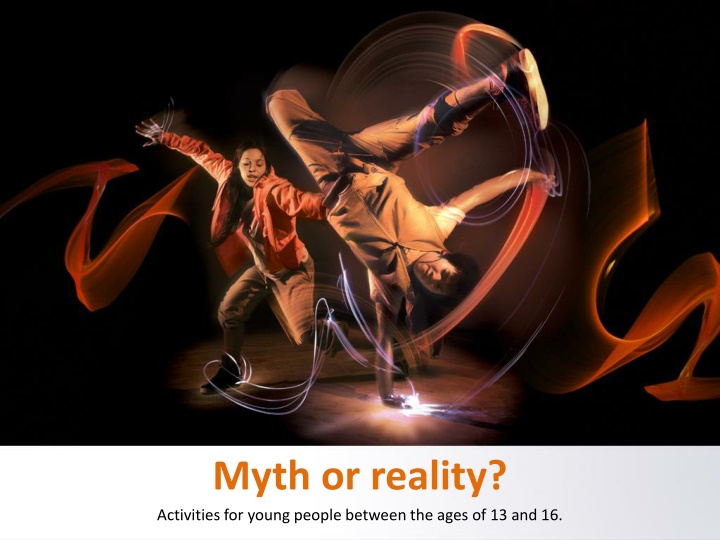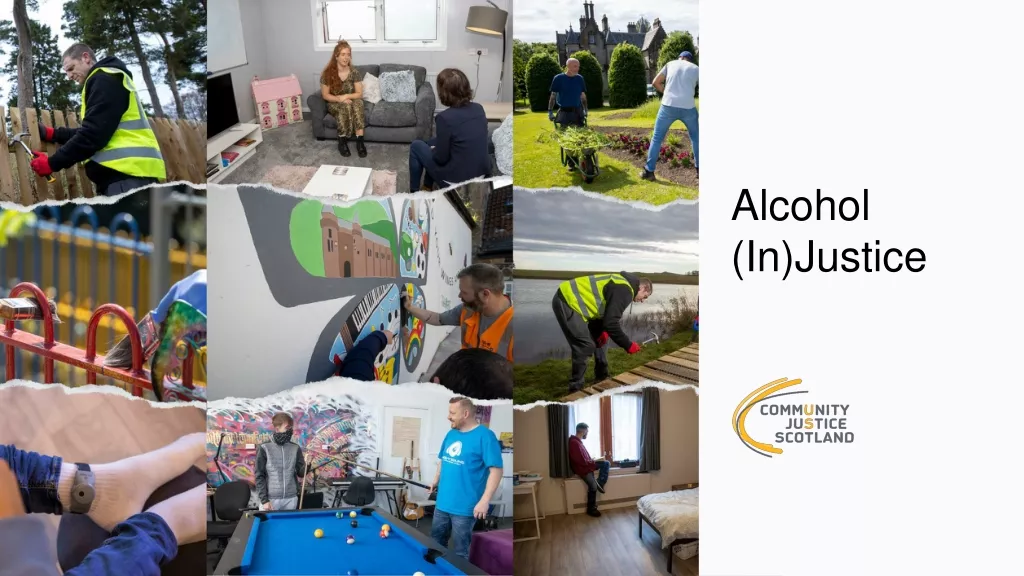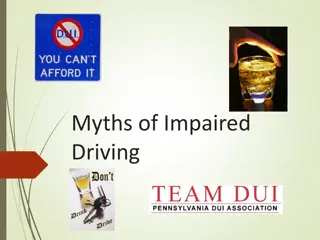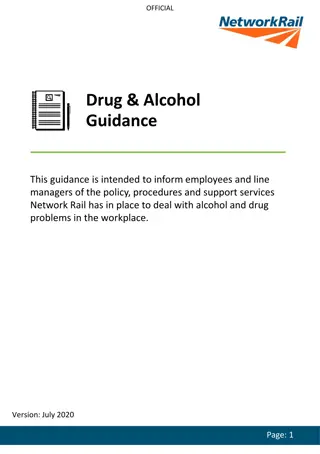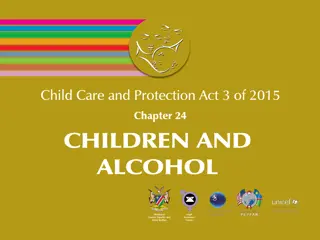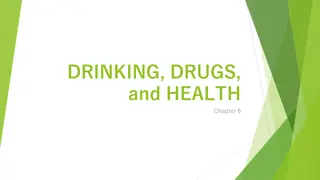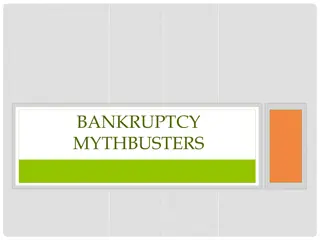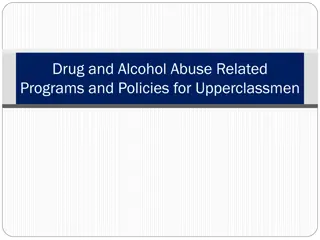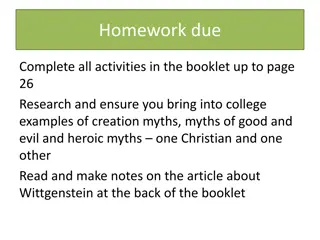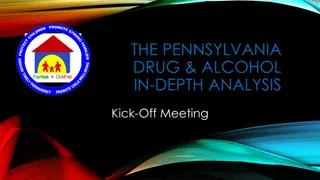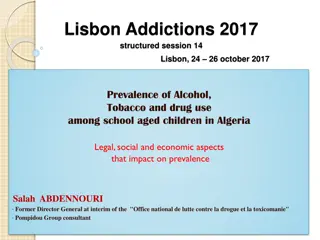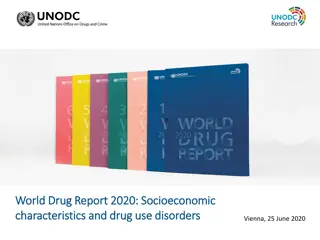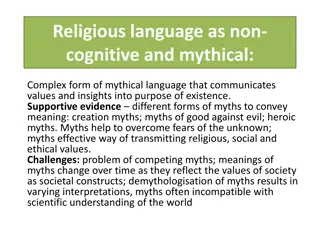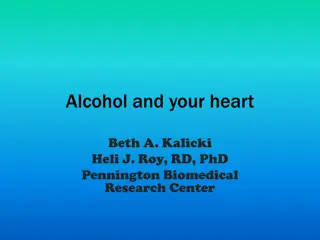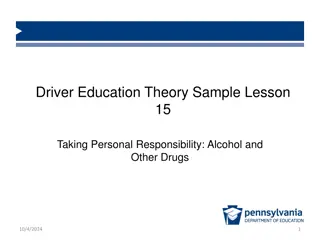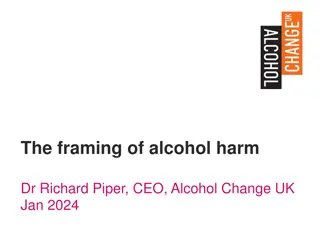Debunking Common Myths About Alcohol and Drug Use Among Young People
High school students aged 13 to 16 are often exposed to misconceptions about alcohol and drug use. This content refutes common myths and sheds light on the realities, such as the decrease in alcohol consumption among youth and the negative impacts affecting not just the individual but also their relationships and community. Substance abuse not only poses risks to physical and mental health but also has broader societal implications. It emphasizes the need for accurate information and awareness to combat these harmful beliefs.
Download Presentation

Please find below an Image/Link to download the presentation.
The content on the website is provided AS IS for your information and personal use only. It may not be sold, licensed, or shared on other websites without obtaining consent from the author.If you encounter any issues during the download, it is possible that the publisher has removed the file from their server.
You are allowed to download the files provided on this website for personal or commercial use, subject to the condition that they are used lawfully. All files are the property of their respective owners.
The content on the website is provided AS IS for your information and personal use only. It may not be sold, licensed, or shared on other websites without obtaining consent from the author.
E N D
Presentation Transcript
Myth or reality? Activities for young people between the ages of 13 and 16.
Statement 1 More and more high school students start drinking every year.
Answer Myth Overall, drinking among high school students age 12 to 17 has actually decreased. In the space of a few years, the percentage of young people who had already tried alcohol dropped from 71% to 60%. Altogether, 40% of high school students today choose not to drink compared to 29% in 2000. Of the 60% who have already tried alcohol, 75% have only tried it once and say they won t try it again, whereas others drink alcohol less than once a month. Source: Ga tane Dub et al. Enqu te qu b coise sur le tabac, l alcool, la drogue et le jeu chez les l ves du secondaire, 2008.
Statement 2 When I drink alcohol I can feel more relaxed, funnier, or smarter.
Answer Myth There s no assurance that drinking will make you a nicer or more fun person. Alcohol and drugs affect brain function, altering the way neurons communicate and interfering with your senses, which can impair your judgment, make you behave differently, and hamper your coordination. It s possible to function as you normally would under the effect of drugs or alcohol, but you surely won t become smarter or more fun!
Statement 3 I m the only one affected by the negative stuff that can result when I consume alcohol or other drugs so it s nobody else s business!
Answer Myth It s true that the negative aspects of alcohol or drug abuse affect users directly. For instance, they might experience: Injuries after a fight or accident Physical problems (headache, digestive issues, low energy) Psychological problems (inattentiveness in class, bad moods, irritability, anxiety, depression, etc.) But families can suffer too, and so can friends and people you re close to, if there are: Relationship problems (big arguments when the user is under the influence of alcohol or drugs, disagreements over their use, and so on) Unprotected sexual encounters that can result in sexually transmitted infections or unwanted pregnancies, and take a toll on emotions and relationships And we re not even talking about the highway accidents that result from driving under the influence. The victims are often perfect strangers, and there can be short-, medium-, or long-term consequences for all. Can you describe some other ways that substance abuse affects us?
Statement 4 One of the reasons people give to explain why they use alcohol or drugs is to fit in.
Answer Reality Your friends and peers can sometimes have a very strong influence on you. You may feel obliged to use alcohol or drugs to fit in, out of fear of rejection, or because you feel like everyone around you is doing it. First, you should know that overall, young people your age have significantly reduced their consumption of alcohol, cannabis, and other drugs since 2000. (Cont d )
Answer(contd) Second, you may sometimes think the people around you don t have any influence on you. But you have to pay close attention to all the subtle ways they can influence you in order to resist like recognizing how other people s expectations can affect your behaviors and choices; not letting yourself be negatively influenced by other people s attitudes, words, or actions; and practicing different ways of saying no. It s up to you to recognize the young people around you who have a positive or negative influence on you and determine who you let influence the decisions you make about anything from social, sports, and artistic activities to drugs and alcohol.
Statement 5 Even if you always drink or use the same amount or the same type of alcohol or drugs, it does not mean you can predict the effect these substances will have.
Answer Reality Psychological condition, fatigue level, weight, and context are all factors that can influence the effect alcohol or drugs will have on the body.
Statement 6 Your friend tells you that he found a website that has sure-fire tips and tricks on how to win at poker one out of every two games.
Answer Myth You can tell him that he might as well face the facts: there are no sure-fire tips or tricks for winning at gambling. Luck good and bad is the name of the game!
Statement 7 Feeling good about yourself, knowing your strengths and weaknesses, believing in your future and setting goals are all factors that can help you reduce the risk of having problems, particularly with alcohol, drugs, or gambling.
Answer Reality These are all factors that can contribute to your well-being and help you reduce the risk of developing drug, alcohol and gambling-related problems. Here are some other examples of protective factors: Having a circle of friends you can trust and who you feel comfortable with Maintaining good family relationships Getting involved in projects, finding a passion, or regularly engaging in sports or recreational activities Having a healthy lifestyle in terms of physical activity, diet, and sleeping
